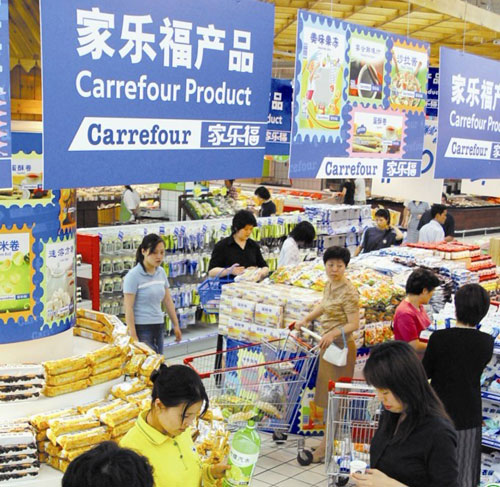So much to choose from in China Ltd
Updated: 2013-07-29 07:19
By Cecily Liu, Chen Yingqun in Beijing and Qiu Bo in London (China Daily)
|
|||||||||||
|
Increasing urbanization has created opportunities for foreign brands as people become more demanding and discriminating in what they buy. Provided to China Daily |
Growing hordes of savvy buyers offer brands new, big opportunities
Increasing sophistication is walking hand-in-hand with urbanization to retail counters all around China. As well as creating millions more customers with rising incomes, rapid urban expansion is also creating far more demanding and discriminating people, and in the process, creating new opportunities for foreign brands.
"Urbanization plays an important role in that it makes people more exposed to brands or products than in towns or villages," says Jeff Walters, a partner and managing director of Boston Consulting Group Greater China.
International chains
Foreign companies have great advantages in China, he says, because they are often supported by brand reputation and heritage, especially in areas where quality is important to the Chinese, such as luxury products and food.
Such advantages are particularly pertinent to supermarkets and hypermarkets, which can stock more than 200,000 brands of merchandise at any one time.
These superstores scarcely existed a few decades ago when China was mostly a rural society.
But as the country opened up, cities grew and the market economy developed, retail chains such as Walmart Stores Inc from the US, Carrefour SA of France, and the UK's Tesco Plc moved in and have expanded in China with global expertise in management as their key advantage.
Christina Lee, senior director of corporate affairs at Walmart China, says the company has about 400 stores in China, with 80 percent of them located in second- and third-tier cities.
She says it is now looking to open more stores in smaller Chinese cities where competition is less fierce.
"Customer needs are always our top priority," she says. "We will open new stores where we find that need and the market is ready."
The Chinese welcome hypermarkets, Lee adds, because they provide a wide variety of products at cheaper prices, achieved through economies of scale.
"Our shoppers at all income levels want to protect their savings and are insisting on lower prices and better value, which leads to smarter shopping. They are moving away from wet markets or smaller grocers and choosing hypermarkets, where product quality and food safety standards are more consistent and prices lower," she says.
To ensure competitive prices, Lee says Walmart focuses on simplifying business processes to save operational costs, lowers the cost of goods by sourcing them directly from suppliers, centralizes and maintains good relationships with suppliers, improves supply chain efficiency and reinvests these savings in the business.
Good quality and safety, especially for food items, is also key to satisfying Chinese customers, says Thierry Garnier, president and CEO of Carrefour China.
Garnier says that Carrefour has set up 43 mini-laboratories across China and four large-scale laboratories in major cities to conduct daily random investigations of food quality.
The bigger laboratories, in Beijing, Shanghai, Chongqing and Shenyang, test food safety using 65 parameters such as the extent of pesticide residue and food additives and preservatives. The smaller labs have facilities for testing 11 parameters.
Related Stories
Superstore operator plans expansion 2013-05-01 13:41
Rural retail chain planned 2013-06-29 07:41
Wal-Mart to open 30 new stores in China 2013-04-02 11:03
Wal-Mart denies China withdrawal, announces new stores 2013-03-18 16:50
Carrefour set to buy back stake in Harbin 2013-07-02 19:10
Today's Top News
FM welcomes deal with EU on solar panel dispute
Major SOEs eye profits from abroad
Train collision kills at least 44 in Switzerland
7-year-old 'brain dead' after swimming lesson
Families of crash victims to sue Asiana in the US
Open investigations urged after killings
Families looking to adopt turn to website
Sino-Japanese summit ruled out
Hot Topics
Lunar probe , China growth forecasts, Emission rules get tougher, China seen through 'colored lens', International board,
Editor's Picks

|

|

|

|

|

|






